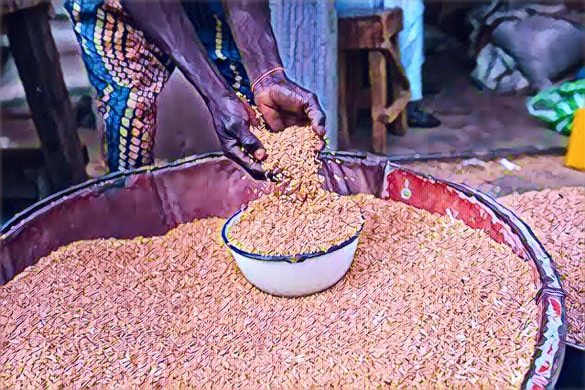In Murambinda, 200 kilometers from Harare, residents are experiencing acute starvation due to an El Niño-induced drought, exacerbating existing tensions over food distribution. Allegations of political manipulation and corruption are rampant, with claims that local Zanu PF leaders, including war veterans, are unfairly controlling the food supply.
Tonderayi Nyaungwe, a villager allegedly denied food aid due to his political affiliations, highlighted the severity of the situation. “Food is a weapon of choice in rural Zimbabwe,” he stated, describing the desperation of opposition supporters who are systematically excluded from receiving aid. This practice of politicizing food distribution is not new; a 2017 Zimbabwe Human Rights Commission report accused Zanu PF activists of using food aid as a political weapon and a means of vote-buying.
The situation is dire for all community members, regardless of political allegiance. Elderly resident and ruling party supporter, Sekuru Johns, criticized the rampant corruption hindering fair food distribution. He accused local authorities, including councilors and some war veterans, of diverting food meant for the needy to their personal contacts or for profit. Despite his grievances, he refrained from naming individuals for fear of retribution.
War veterans in the area have denied these accusations, asserting their role as peacekeepers in the food distribution process. Susan Chitando, a local war veteran, insisted that food is handed out through official channels without favoritism, aiming to maintain order during these difficult times.
The government acknowledges the gravity of the drought, estimating the need for over US$2 billion in food imports to address the crisis. President Emmerson Mnangagwa has repeatedly assured that no citizen will go hungry, promising equitable food distribution across the country.
However, this promise seems hollow in places like Buhera, where the President recently hosted lavish independence celebrations. Locals were provided with meals uncharacteristic of their usual diet — two pieces of spicy chicken, French fries, and fizzy drinks — along with a 10 kg pack of roller meal, which is insufficient to meet their needs for even a week. Participants were required to chant ruling party slogans and sing along to Zanu PF’s campaign songs, highlighting the politicized nature of aid distribution.
The disparity between the government’s public assurances and the reality on the ground calls for urgent action to rectify the corruption and political bias in food distribution. As Zimbabwe faces one of its worst droughts in years, the need for transparency, fairness, and efficiency in aid delivery is more critical than ever. The involvement of international observers and stricter controls on food distribution processes may be necessary to ensure that aid reaches those in genuine need, regardless of their political affiliations.
The crisis in Murambinda is a microcosm of broader issues affecting Zimbabwe, where political dynamics heavily influence basic survival. The international community, local leaders, and organizations must come together to address these challenges head-on, ensuring that every Zimbabwean has access to the food and resources necessary to sustain themselves during these trying times.
Source: Newsday


